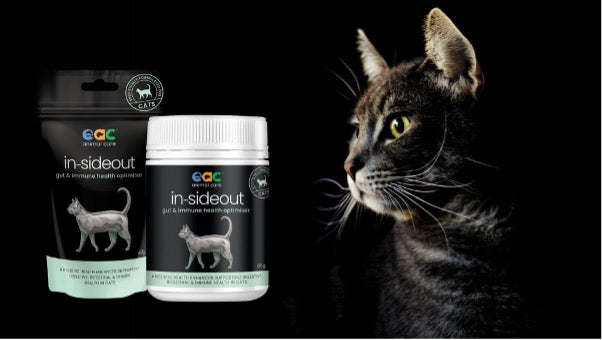Hyaluronic acid (HA) develops naturally in the bodies of horses and other animals and supports joint function. As a result, HA supplements are becoming increasingly popular to aid horses with joint stiffness and diseases.
But do hyaluronic acid supplements benefit all horses? We explore the potential uses of hyaluronic acid so you can make an informed decision.
Key Takeaways:
-
Hyaluronic acid is a naturally occurring substance and a major component of joint fluid.
-
HA supplements, like in-fusion ha, are often used to help horses and other animals with joint pain and stiffness. (Also see joint mobility with MSM).
-
Healthy, injured and aging horses may all benefit from HA supplementation.
-
Supplements are available in injectable and oral forms, and the correct dose and form must be determined for each individual horse.
-
Your veterinarian can help you determine if hyaluronic acid supplements may benefit your horse.

What Is Hyaluronic Acid?
Hyaluronic acid, also known as sodium hyaluronate or hyaluronan, is a naturally occurring compound in your horse's synovial fluid. Synovial fluid lubricates the horse's joints and helps make them more flexible, but only thanks to hyaluronic acid's ability to create viscosity within the fluid.
HA has been used as an injectable supplement to treat performance horses' joints for many years, but it has recently become popular among horse owners who want to keep their pleasure horses healthy and active.
Its growing popularity is also because it's now available in easily administrable oral gel form, powder form and liquid form, allowing horse owners to supplement equine diets with HA without the assistance of a vet.
Why Is HA Important to Articular Cartilage and Joint Fluid?
Articular cartilage and joint fluid contain hyaluronic acid, and HA contributes to their performance. Animals without enough hyaluronic acid in their joint cartilage or fluid due to diet or age may experience joint pain, inflammation and stiffness.
These issues can be especially detrimental to horses who compete and rely on healthy joints for their livelihood. Providing HA as an oral supplement or injection is a common practice in veterinary medicine. Supplementing a horse's natural production of HA may increase the elasticity of the joint and decrease the risk of degeneration.
In addition, when a horse has an acute injury, like joint trauma, it typically results in the loss of considerable levels of hyaluronic acid. This changes the viscosity of the synovial fluid, potentially causing elevated friction. Friction can lead to cartilage damage and joint degeneration.
HA supplementation may restore the viscosity of the synovial fluid after an injury and prevent damage to a horse's joints and connective tissues.
What Does Hyaluronic Acid Do For Horses?
The equine body naturally produces hyaluronic acid, and it contributes heavily to the synovial fluid's viscosity, enabling it to thoroughly lubricate the joints and facilitate effortless movement. Therefore, supplementing your horse's diet with hyaluronic acid supports healthy joints and encourages the natural movement of connective tissues.
Regardless of whether your equine has retired to the field or is active in strenuous sports, keeping its connective tissue in tip-top condition is essential. Connective tissues are located all around the body, and supplying them with extra nourishment can help maintain their vital functions.
In addition, HA supplements may ease joint inflammation and protect against cartilage degeneration caused by wear and tear, especially in equine athletes. Some owners also use hyaluronic acid to boost wound healing and treat other health issues.
In short, it has a large scope of uses, and its benefits are wide-ranging.
Treating a Horse's Joints with Hyaluronic Acid
Since hyaluronic acid is vital to movement within the joint and a key component of joint health, it is a favoured joint supplement. Horses with inflamed joints or other issues may benefit from hyaluronic acid supplements.
HA can be used to treat joint diseases and injuries like:
-
Degenerative joint disease (Osteoarthritis)
-
Tendinitis
-
Joint stiffness
-
Synovitis (inflammation of the membrane around the joint capsule)
-
Capsulitis (inflammation of the joint capsule)
Some healthy horses also benefit from HA supplementation, as hyaluronic acid can be given preventatively to maintain healthy equine joints and connective tissues.
Will Hyaluronic Acid Benefit All Horses?
While there are many potential benefits to taking hyaluronic acid, supplementation is not necessary for all horses. HA primarily supports joint health and mobility, so it's best suited for horses showing early signs of joint stiffness or lameness or those likely to suffer from joint problems in the future, like racehorses.
HA is most effective when used preventively. For example, a horse working hard in the show ring or reaching senior status may benefit from hyaluronic acid supplements, whether it has joint issues or not.
Horses with developing health problems, such as arthritis, are also likely to benefit, as HA supplements can give animals with arthritis excellent joint support. That said, don't expect dramatic changes in senior horses with advanced osteoarthritis. Animals with advanced arthritis probably need more intensive care.
If you are considering oral joint supplements, it's best to discuss your horse's options with your vet before adding hyaluronic acid to your horse's diet, as they can give you the best advice for your horse.

Image courtesy of Horse Journals
How to Administer Hyaluronic Acid
Horse owners looking to prevent joint and cartilage wear and tear have various options when administering supplements. HA supplements that encourage healthy joints are available in powder, liquid, gel and injectable forms.
Hyaluronic Acid Injections
Injections are popular for racehorses and other performance animals as they deliver HA in high doses directly to the affected joint. An intra-articular or intravenous injection can quickly minimise swelling and alleviate pain in the horse's joints.
The downside to injections is that they come with potential risks, like joint infections, and a vet must be involved.
Oral Hyaluronic Acid
Alternatively, many powdered, gel and liquid hyaluronic acid supplements can be added to your horse's feed. Oral hyaluronic acid supplements require no veterinarian intervention and are also effective at reducing inflammation and lubricating the joints.
With oral HA, there's also no risk of joint infection since there's no injection site.
Whether you choose oral hyaluronic acid or intravenous/intravenous hyaluronic acid, follow the instructions on the packaging or the directions provided by your vet. And keep your veterinarian informed about any changes in your horse's diet and health.
in-fusion ha: A Hyaluronic Acid Supplement for Joint Support
in-fusion ha is just one example of a liquid sodium hyaluronate supplement specifically formulated for horses and dogs. This potent yet easy-to-administer formula helps restore vital hyaluronic acid levels to support equine joints and connective tissues.
Whether you're caring for an equine athlete, a canine friend or even your cherished senior in retirement, in-fusion ha can assist in supporting their joints.
Are There Any Side Effects?
For the most part, HA supplements are considered to be safe for horses. As with any supplement, however, you should pay attention to your horse's behaviour and health when administering HA. Some horses have allergies that may cause problems.
Injection sites should also be carefully monitored for signs of infection if HA is given intra-articular or intravenously.
It's also critical to note that HA is not a substitute for proper veterinary care. If your horse exhibits signs of lameness or pain, contact your veterinarian for appropriate diagnosis and treatment.
When used correctly, hyaluronic acid is a safe and effective supplement for horses needing an extra boost of joint and cartilage health.
FAQS About Hyaluronic Acid
We know horse owners want the very best for their equine partners and may have questions about hyaluronic acid.
Here are some common FAQs that may help.
Is Hyaluronic Acid Good for Ulcers?
Hyaluronic acid may be good for ulcers in some cases. For example, HA may reduce the pain and inflammation associated with ulcers. It's also good for speeding the healing process of skin ulcers.
A holistic pre & probiotic supplement that promotes good digestion and a robust immune system, like in-sideout, is another great option for ulcer prevention and support.
Are There Any Natural Sources of Hyaluronic Acid?
Hyaluronic acid is naturally found in some foods, such as bone broth, soy products, eggs and vegetables. However, these sources may not provide enough of the acid to be beneficial, and equines typically don't partake in these foods anyway.
To get the best results, oral supplementations or injections are often necessary for horses, humans and other animals.
Will Hyaluronic Acid Help My Horse's Arthritis?
Hyaluronic acid is commonly used as a joint supplement and can help decrease inflammation and pain associated with arthritis. As such, it may help your horse's arthritic joints tremendously.
HA injections are often recommended for horses suffering from joint issues, as the supplement is concentrated and can be administered directly to the joint. However, oral supplements are also an option.
What Other Supplements Does My Horse Need?
The goal with nutriceutical and dietary supplements is usually to support your horse holistically, encouraging full-body health instead of focusing only on problem areas.
To achieve that goal, hyaluronic acid is often combined with other joint health products, such as glucosamine and chondroitin sulphate, to create more effective supplements. Omega-3 fatty acids are also beneficial for joint health.
Other helpful horse supplements include:
MSM Supplements
MSM supplements, like in-fusion MSM, may pair well with hyaluronic acid. MSM is known to reduce inflammation, encourage a healthy metabolism and repair damaged tissue. It also contributes to strong hooves, skin and hair.
When combined with HA, MSM supplements may provide significant benefits to your horse's health.
Pre & Probiotic Supplements
Holistic supplements that encourage good gut health and immune support, like in-sideout, can also help maximise hyaluronic acid's benefits and facilitate optimal overall health.
in-sideout offers equines many advantages, including skin and coat health, better utilisation of nutrients and ulcer prevention.
Hoof and Coat Supplements
Having healthy skin and hooves is vital to infection prevention. Horse owners treating animals with hoof or skin issues should consider supplements like in-stride, which encourages growth and stronger hooves.
It's best to discuss supplement combinations with a veterinarian or nutritionist. They can help you decide which supplements work best for your horse's specific situation.
Healthier Joints and a Happier Horse
So, what does hyaluronic acid do for horses? A lot! HA supplementation support horses with joint problems in maintaining a comfortable lifestyle and can aid racehorses and other competitive animals in achieving peak performance. The anti-inflammatory properties of HA may even alleviate swelling and discomfort caused by issues like laminitis.
Hyaluronic acid is a safe and effective supplement to improve your horse's joints and overall health. Just make sure to consult your veterinarian before administering any new supplement and follow their directions closely.
With the right care, your horse can enjoy healthier joints and a happier life.
By Dr. Guangda Xue (Danny), BSc, MRes, PhD
Animal scientist specialised in gut health development and inflammation management





